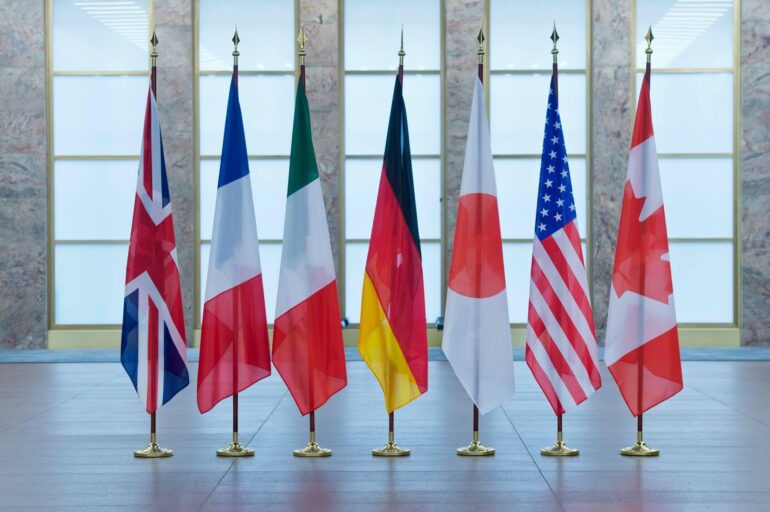TL;DR:
- The G7 countries held a meeting in Takasaki, Japan, to discuss the regulation of artificial intelligence (AI) and secure digital infrastructure.
- The rapid development of AI has highlighted the need for a unified approach to its usage and regulation.
- The meeting was led by the Japanese Minister of the Interior and Communications, Takeaki Matsumoto, and brought together digitization and technology heads from the G7 countries.
- The focus of the meeting was to lay the foundation for a rules-based global plan that would avoid the usage of technology that undermines values and democratic processes.
- The ministers discussed the potential impacts of AI on society, including its impact on the job market, privacy, and security, and the need for international collaboration in the development and regulation of AI.
- The outcome of this meeting will shape the future of AI and secure a more secure and resilient digital future for all.
Main AI News:
Information Technology Ministers from the G7 countries gathered in Takasaki, Japan, for a pivotal meeting aimed at outlining international regulations for AI and securing the digital infrastructure.
The rapid advancement of AI has brought to light the need for a unified approach to its usage and regulation. With various countries creating their own rules on programs like ChatGPT, the G7 ministers sought to lay the foundation for a rules-based global plan that would avoid the usage of technology that undermines values and democratic processes. The ministers of the Group of Seven (G7) countries understand the importance of ensuring that AI is developed and used in a responsible and ethical manner.
Under the leadership of the Japanese Minister of the Interior and Communications, Takeaki Matsumoto, the two-day meeting brought together Digitization and Technology heads from Canada, France, Germany, Italy, Japan, the United Kingdom, and the United States. The focus of the meeting was to lay the foundation for a rules-based global plan that would avoid the usage of technology that undermines values and democratic processes.
Minister Matsumoto emphasized the importance of considering appropriate rules for AI and expressed his desire to draft a document outlining specific measures in this regard. He stated that while it is important to promote the development of AI, there are certain risks that must be taken into consideration, depending on how it is used. He added that it is crucial to address these risks in order to ensure the responsible and ethical usage of AI.
In addition to addressing the critical issue of fake news and disinformation, the G7 ministers will also tackle other challenges posed by the rapidly evolving technology. The ministers will delve into the potential impacts of AI on society, including its impact on the job market, privacy, and security. They will also discuss the need for international collaboration and cooperation in the development and regulation of AI.
The roadmap for promoting responsible AI usage by the world’s most developed countries is sure to encourage other nations to actively participate in the development of global standards. The G7 meeting in Takasaki serves as a significant step towards a more secure and resilient digital future. The ministers recognize the potential of AI to revolutionize the world and drive economic growth, but they also understand the importance of ensuring that its usage is guided by ethical principles and values.
Conlcusion:
The G7 meeting in Takasaki demonstrates the growing concern of governments and leading economies regarding the regulation and responsible usage of artificial intelligence, with a focus on creating a comprehensive framework for AI regulation and securing digital infrastructure.
This signals the potential growth and impact of AI on the global market, as well as the importance of ethical principles and values guiding its usage for a secure and sustainable future. The meeting holds significant implications for the AI market and its stakeholders and is likely to shape the future direction of this rapidly evolving technology, potentially resulting in increased investment and innovation.

